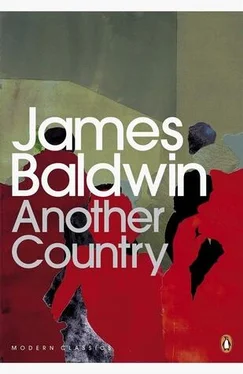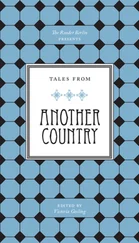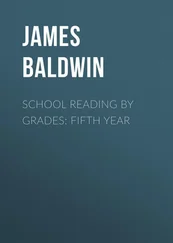Eric laughed. “Not many famous friends, no. I don’t know if I have any friends there now, I’ve been away so long.”
“Who were your friends when you left?” He grinned again and rubbed his cheek against Eric’s. “Boys like me?”
“There are no boys like you. Thank God.”
“You mean not so pretty as I? Or not so warm?”
He put his hands on Yves’ salty, sandy shoulders. He heard the children’s voices from the sea and the buzzing and booming in the garden. “No. Not so impossible.”
“Naturally, now that you are about to leave, you find me impossible. And from what point of view?”
He drew Yves closer. “From every point of view.”
“ C’est dommage. Moi, je t’aime bien. ”
These words were whispered against his ear, and they lay still for a few moments. Eric wanted to ask, Is that true? but he knew that it was true. Perhaps he did not know what it meant, but, there, Yves could not help him. Only time might help, time which surrendered all secrets but only on the inexorable condition, as far as he could tell, that the secret could no longer be used.
He put his lips to Yves’ shoulder and tasted the Mediterranean salt. He thought of his friends — what friends? He was not sure that he had ever really been friends with Vivaldo or Richard or Cass; and Rufus was dead. He was not certain who, long, long after the event, had sent him the news — he had the feeling that it had to be Cass. It could scarcely have been Vivaldo, who was made too uneasy by what he knew of Eric’s relation to Rufus — knew without being willing to admit that he knew; and it would certainly not have been Richard. No one, in any case, had written very often; he had not really wanted to know what was happening among the people he had fled; and he felt that they had always protected themselves against any knowledge of what was happening in him. No, Rufus had been his only friend among them. Rufus had made him suffer, but Rufus had dared to know him. And when Eric’s pain had faded, and Rufus was far away, Eric remembered only the joy that they had sometimes shared, and the timbre of Rufus’ voice, his half-beat, loping, cocky walk, his smile, the way he held a cigarette, the way he threw back his head when he laughed. And there was something in Yves which reminded him of Rufus — something in his trusting smile and his brave, tough vulnerability.
It was a Thursday when the news came. It was pouring down rain, all of Paris was wavering and gray. He had no money at all that day, was waiting for a check which was mysteriously entangled in one of the bureaucratic webs of the French cinema industry. He and Yves had just divided the last of their cigarettes and Yves had gone off to try and borrow money from an Egyptian banker who had once been fond of him. Eric had then lived on the Rue de la Montagne Ste. Geneviève, and he labored up this hill, in the flood, bareheaded, with water dripping down his nose and eyelashes and behind his ears and down his back and soaking through his trench-coat pocket, where he had unwisely placed the cigarettes. He could practically feel them disintegrating in the moist, unclean darkness of his pocket, not at all protected by his slippery hand. He was in a kind of numb despair and intended simply to get home and take off his clothes and stay in bed until help came; help would probably be Yves, with the money for sandwiches; it would be just enough help to enable them to get through yet another ghastly day.
He traversed the great courtyard and started up the steps of his building; and behind him, near the porte-cochère, the bell of the concierge’s loge sounded, and she called his name.
He went back, hoping that she was not going to ask him about his rent. She stood in her door, with a letter in her hand.
“This just came,” she said. “I thought it might be important.”
“Thank you,” he said.
She, too, hoped that it might be the money he was waiting for, but she closed her door behind her. It was nearly suppertime and she was cooking; in fact, the entire street seemed to be cooking, and his legs threatened to give way beneath him.
He did not look carefully at the outside of the envelope because his mind was entirely occupied by the recalcitrant check, and he was not expecting a check from America, which was where the letter came from; and he crumpled it up, unread, in his trench-coat pocket and crossed the courtyard and went upstairs to his room. There, he put the letter on the table, dried himself, and undressed and got under the covers. Then he lay the cigarettes out to dry, lit the driest one, and looked at the letter again. It seemed a very ordinary letter, until the paragraph beginning We were all very fond of him, and I know that you were, too —yes, it must have been Cass who wrote. Rufus was dead, and by his own hand. Rufus was dead.
Boys like me? Yves had teased. How could he tell the boy who lay beside him now anything about Rufus? It had taken him a long while to realize that one of the reasons Yves had so stirred his heart, stirred it in a way he had almost forgotten it could be stirred, was because he reminded him, somehow, somewhere, of Rufus. And it had taken him almost until this very moment, on the eve of his departure, to begin to recognize that part of Rufus’ great power over him had to do with the past which Eric had buried in some deep, dark place; was connected with himself, in Alabama, when I wasn’t nothing but a child; with the cold white people and the warm, black people, warm at least for him, and as necessary as the sun which bathed the bodies of himself and his lover now. Lying in this garden now, so warm, covered, and apprehensive, he saw them on the angular, blazing streets of his childhood, and in the shuttered houses, and in the fields. They laughed differently from other people, so it had seemed to him, and moved with more beauty and violence, and they smelled like good things in the oven.
But had he ever loved Rufus? Or had it simply been rage and nostalgia and guilt? and shame? Was it the body of Rufus to which he had clung, or the bodies of dark men, seen briefly, somewhere, in a garden or a clearing, long ago, sweat running down their chocolate chests and shoulders, their voices ringing out, the white of their jock-straps beautiful against their skin, one with his head tilted back before a dipper — and the water splashing, sparkling, singing down! — one with his arm raised, laying an axe to the base of a tree? Certainly he had never succeeded in making Rufus believe he loved him. Perhaps Rufus had looked into his eyes and seen those dark men Eric saw, and hated him for it.
He lay very still, feeling Yves’ unmoving, trusting weight, feeling the sun.
“Yves—?”
Oui, mon chou? ”
“Let’s go inside. I think, maybe, I’d like to take a shower and have a drink. I’m beginning to feel sticky.”
“ Ah, les américains avec leur drinks! I will surely become an alcoholic in New York.” But he raised his head and kissed Eric swiftly on the tip of his nose and stood up.
He stood between Eric and the sun; his hair very bright, his face in shadow. He looked down at Eric and grinned.
“ Alors to es toujours prêt, toi, d’après ce que je vois .”
Eric laughed. “ Et toi, salaud? ”
“ Mais moi, je suis français, mon cher, je suis pas puritain, fort heureusement. T’aura du to rendre compte d’ailleurs. ” He pulled Eric to his feet and slapped him on the buttocks with the red bikini. “ Viens . Take your shower. I think we have almost nothing left to drink, I will bicycle down to the village. What shall I get?”
“Some whiskey?”
“Naturally, since that is the most expensive. Are we eating in or out?”
Читать дальше












